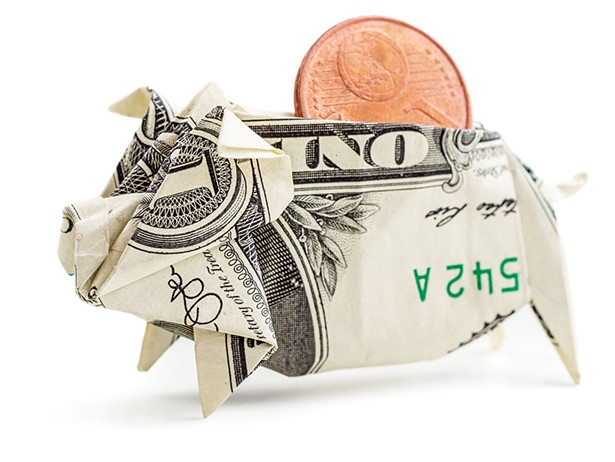The last thing you might expect a financial mentor to do is begin a meeting with meditation. Money doesn't exactly feel like Zen territory. Or does it? My recent introductory session with financial wellness coach Joanne Leffeld starts with eyes closed, sitting tall in my chair, hands light on my lap. "Take a couple of deep, cleansing breaths and make sure both feet are grounded on the earth," she says. "If there's any tension, release it now." The peaceful entrée seems antithetical to what is to come: a journey with money and finances, which can make any heart beat faster and more anxiously.
Yet it's the perfect place to begin. Leffeld, a self-titled "moola doula" who helps people give birth to a better relationship with money, is a former certified financial planner and erstwhile yoga teacher, and she draws from both backgrounds to help people create a new comfort level with finances. It is a terrain that often frightens people: Money almost always ranks as the top stressor for Americans in opinion polls—the number one thing that strains marriages and keeps people up at night. "Money is one of those subjects that gets people so agitated, so overwhelmed, so full of shame, fear—you name it," says Leffeld, who is based in Rhinebeck and also offers sessions across the river at Woodstock Healing Arts. "It has such negative associations, yet it's only an energy. It's like the monster under the bed, but when you shine a flashlight on it you realize it's just a tiny bug."
Rather than panic and flick the bug away, there are things you can do to create a relationship with money that is healthy and grounded instead of fear-based. Experts like Leffeld—as well as Beth Jones and Susan Simon of Third Eye Associates in Red Hook—offer a holistic level of finance coaching that takes into account the whole person. Because they do not sell financial products and don't earn money on commissions, they can give unbiased guidance that includes a fair amount of right-brain soul-searching—something you're not likely to find with your number-crunching stockbroker or financial planner. It's a mix of deep life exploration and practical financial advice, with the aim of educating, empowering, and taking the mystery out of money.
Money and the Inner Child
For Leffeld, the journey into money and finances must begin in a judgment-free zone—a place that is free of the self-blame that many people feel regarding mistakes they've made with their wallets. "We can let go of the judgment. Because really, when in life does anyone sit us down to talk about money? We don't learn it in school, and our parents are often dealing with their own issues about it," she says. Yet a lot of the behaviors we have about money start in early childhood. We can sense when money is given instead of love, and we absorb any tension that's in the air about money in our households. Early experiences create a template for the kinds of decisions we make about money when we get older. We might have formed a fearful template, becoming what Leffeld calls a Restrictor (someone who holds onto every penny and is righteous about not spending) or a Permitter (someone who needs that $2,000 pocketbook or a meal at that fancy new restaurant, yet panics when the credit card bill arrives). While the Restrictor ignores their inner child and cuts off possibilities, the Permitter gives their inner child free rein and lets it wreak havoc on their adult lives.
These are the extremes, but a sweet spot lies in the middle. "Once you realize that your inner child is alive and inside you, then you can bring a sense of conscious awareness to every financial decision that you make," says Leffeld. "You can say, 'Who's calling the shots here? Is it my child because they're not getting a more primal need met, or is it the adult saying, This is a good choice for me?'" To help clients gain awareness, Leffeld gives them a questionnaire about money and their inner child. "What makes you happy, what makes you giddy? What makes you want to crawl under the covers and not come out? These are the triggers that make people spend money in an unconscious way. A lot of people find, 'Whoa, this is why I eat out so much or spend money that I don't have.' We need to get in touch with a deeper understanding of why we do the things we do, so that we don't sabotage ourselves."


















